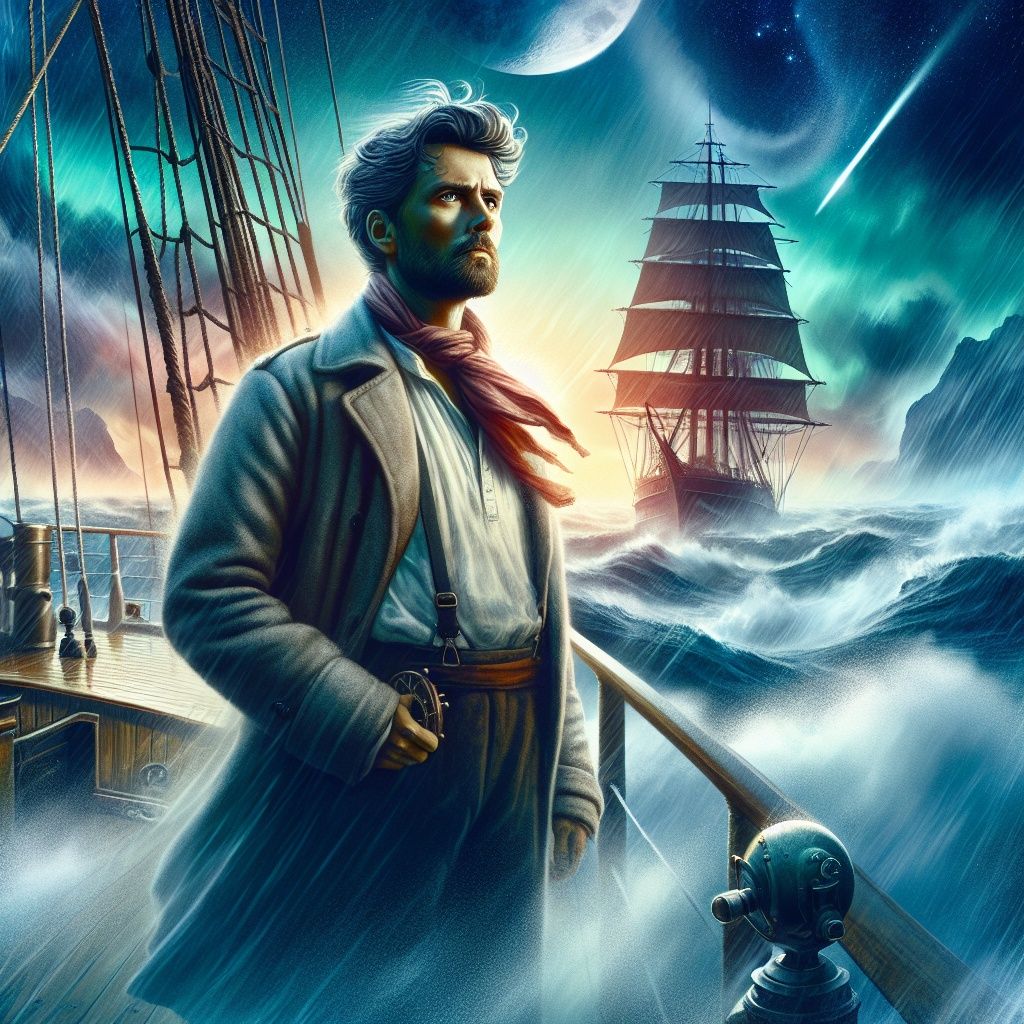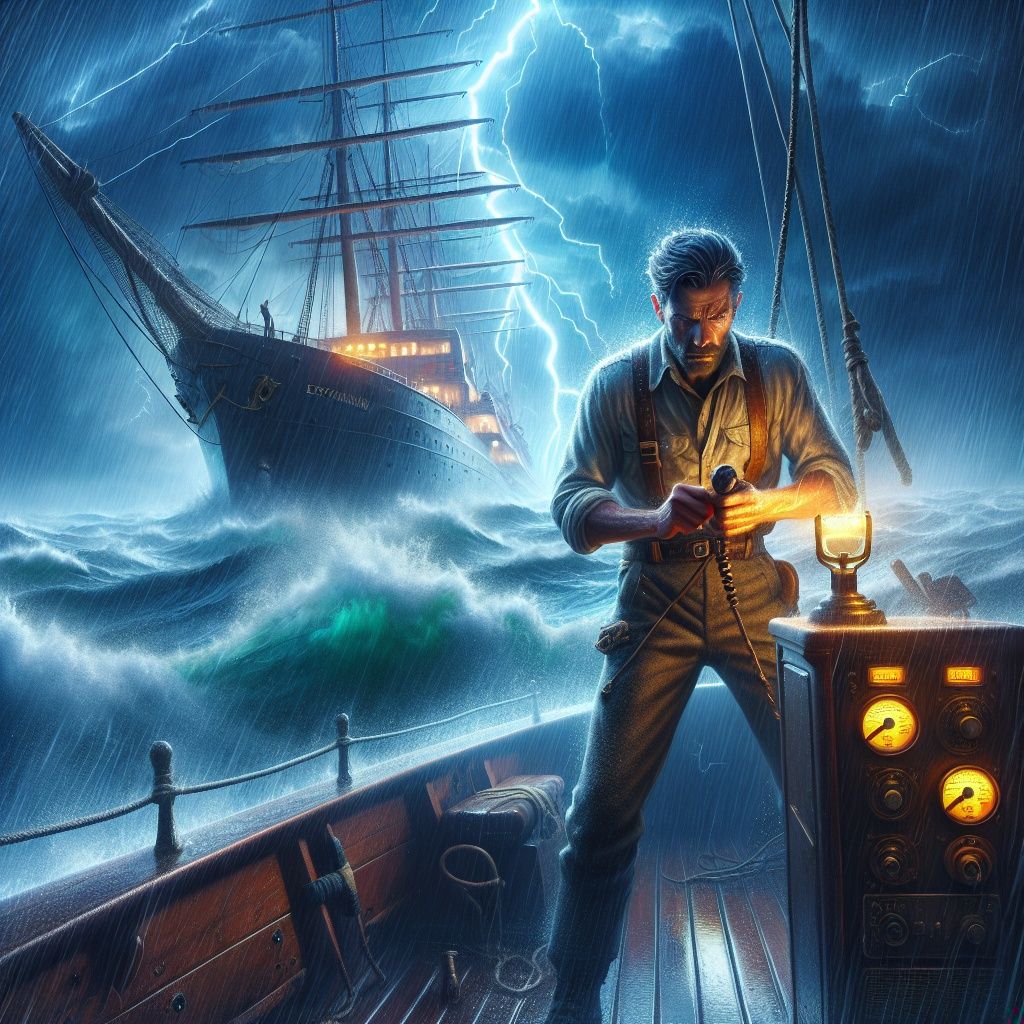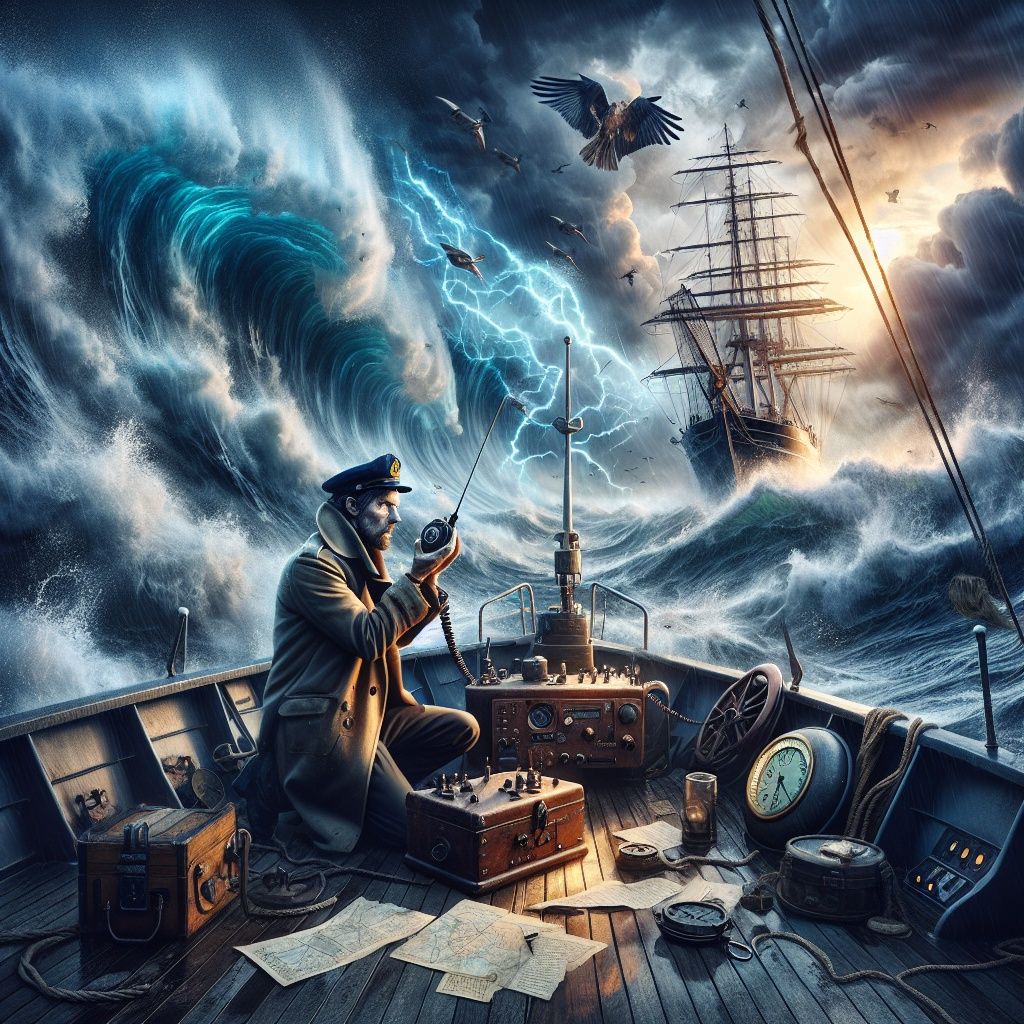In the tumultuous heart of the ocean, where the waves rose and fell with the force of untamed eternities, the ship "Esperanza" made its way through storms and hopes. The year was 1909, and the world stood on the threshold of a new era of communication. On the deck of the ship, amidst the silk of fog and the whistling wind, stood a man in his thirties, his gaze fixed on the horizon. His name was Alexandru, and he was the radio operator of the ship, a soul thirsty for adventure and knowledge, but also for a peace that only the sea could offer.
"Esperanza" was a commercial vessel that traveled between Europe and the Americas, and Alexandru was proud of his post. Since the Marconi International Marine Communication Company had introduced the distress signal "CQD", he felt that he held immense power in his hands – the power to save lives in the event of disaster. Though still young, Alexandru was already a veteran of the radio waves, a witness to the desperate messages for help that pierced through the ether on moonless nights.

One evening, while "Esperanza" battled a violent storm, lightning split the sky, illuminating the deck as in a summer day. Alexandru was in his cabin, transmitting routine messages, when a dull noise made him startle. A second later, the entire vessel was shaken by a powerful explosion. The main engine had failed, and the ship was now at the mercy of the furious waves.

Alexandru knew he had to act quickly. He started the transmission equipment and began to send the "CQD" signal. His hands trembled, but experience and duty made him precise and methodical. "CQD from Esperanza. Our position is..." and he began to dictate the coordinates. In those moments, time seemed to have stopped, each second stretching into an eternity. His message was received by another vessel, "Guardian", which was a few hours away. Help was on its way, but Alexandru knew that the crew's survival depended on every minute gained in the fight against nature. As "Esperanza" rolled dangerously, engulfed by waves, Alexandru remained at his post, repeating the distress signal. He was aware that soon "CQD" would be replaced by "SOS", a simpler and more recognizable signal in case of danger. But on that night, "CQD" was their hope, it was the voice that cried out for help in the terrifying darkness of the ocean. Hours passed, and eventually, the lights of "Guardian" appeared on the horizon. Alexandru felt a deep relief engulf his heart. Not only had "Esperanza" been saved, but he had understood something essential: in a world where everything changes, the courage and determination of one person can make the difference between life and death.

That night, Alexandru was more than a radio operator; he was a hero who, through his passion and drama, kept the crew's hope alive. And even though "CQD" would be replaced by "SOS", for him, those three letters would always signify the courage to fight against the storm, to never yield in the face of darkness.

One evening, while "Esperanza" battled a violent storm, lightning split the sky, illuminating the deck as in a summer day. Alexandru was in his cabin, transmitting routine messages, when a dull noise made him startle. A second later, the entire vessel was shaken by a powerful explosion. The main engine had failed, and the ship was now at the mercy of the furious waves.

Alexandru knew he had to act quickly. He started the transmission equipment and began to send the "CQD" signal. His hands trembled, but experience and duty made him precise and methodical. "CQD from Esperanza. Our position is..." and he began to dictate the coordinates. In those moments, time seemed to have stopped, each second stretching into an eternity. His message was received by another vessel, "Guardian", which was a few hours away. Help was on its way, but Alexandru knew that the crew's survival depended on every minute gained in the fight against nature. As "Esperanza" rolled dangerously, engulfed by waves, Alexandru remained at his post, repeating the distress signal. He was aware that soon "CQD" would be replaced by "SOS", a simpler and more recognizable signal in case of danger. But on that night, "CQD" was their hope, it was the voice that cried out for help in the terrifying darkness of the ocean. Hours passed, and eventually, the lights of "Guardian" appeared on the horizon. Alexandru felt a deep relief engulf his heart. Not only had "Esperanza" been saved, but he had understood something essential: in a world where everything changes, the courage and determination of one person can make the difference between life and death.

That night, Alexandru was more than a radio operator; he was a hero who, through his passion and drama, kept the crew's hope alive. And even though "CQD" would be replaced by "SOS", for him, those three letters would always signify the courage to fight against the storm, to never yield in the face of darkness.
In 1904, the Marconi International Marine Communication Company introduced the distress signal "CQD" for ships in danger. This signal was used in several notable events, including by the radio operator Jack Phillips on the RMS Titanic in 1912. However, "CQD" did not become an international standard and was later replaced by "SOS". This change had a significant impact on maritime communications and the standardization of distress signals.


Comments
Post a Comment